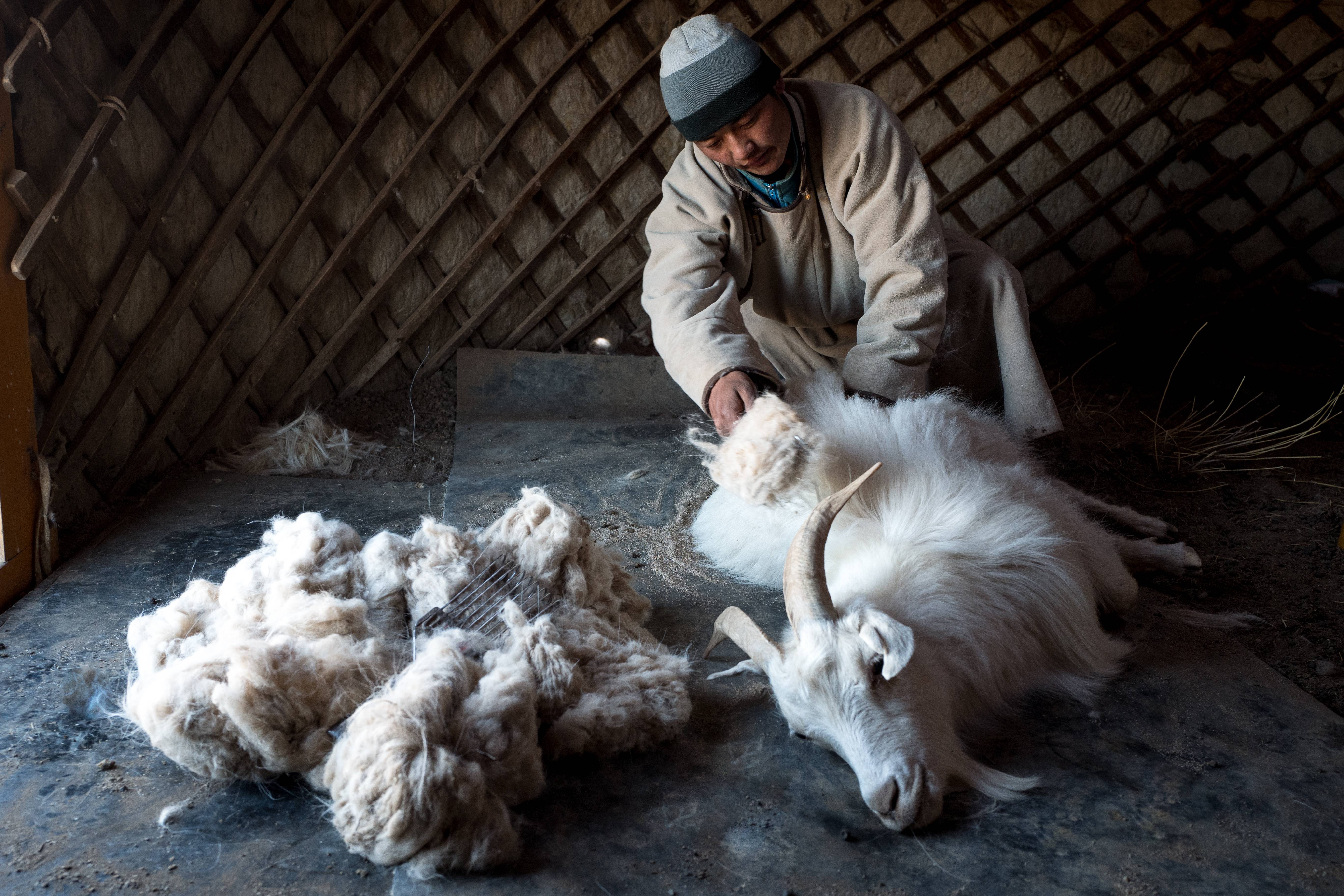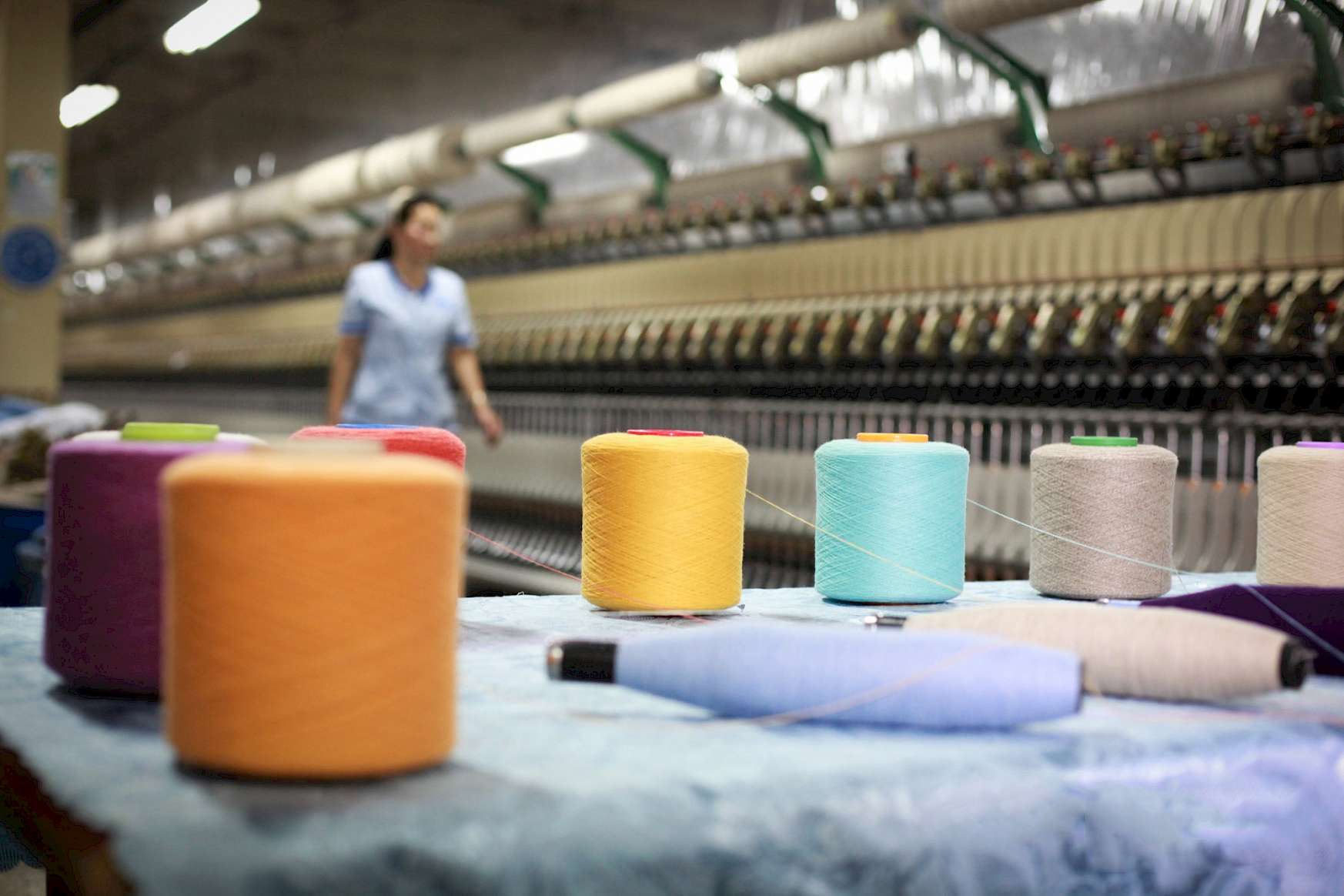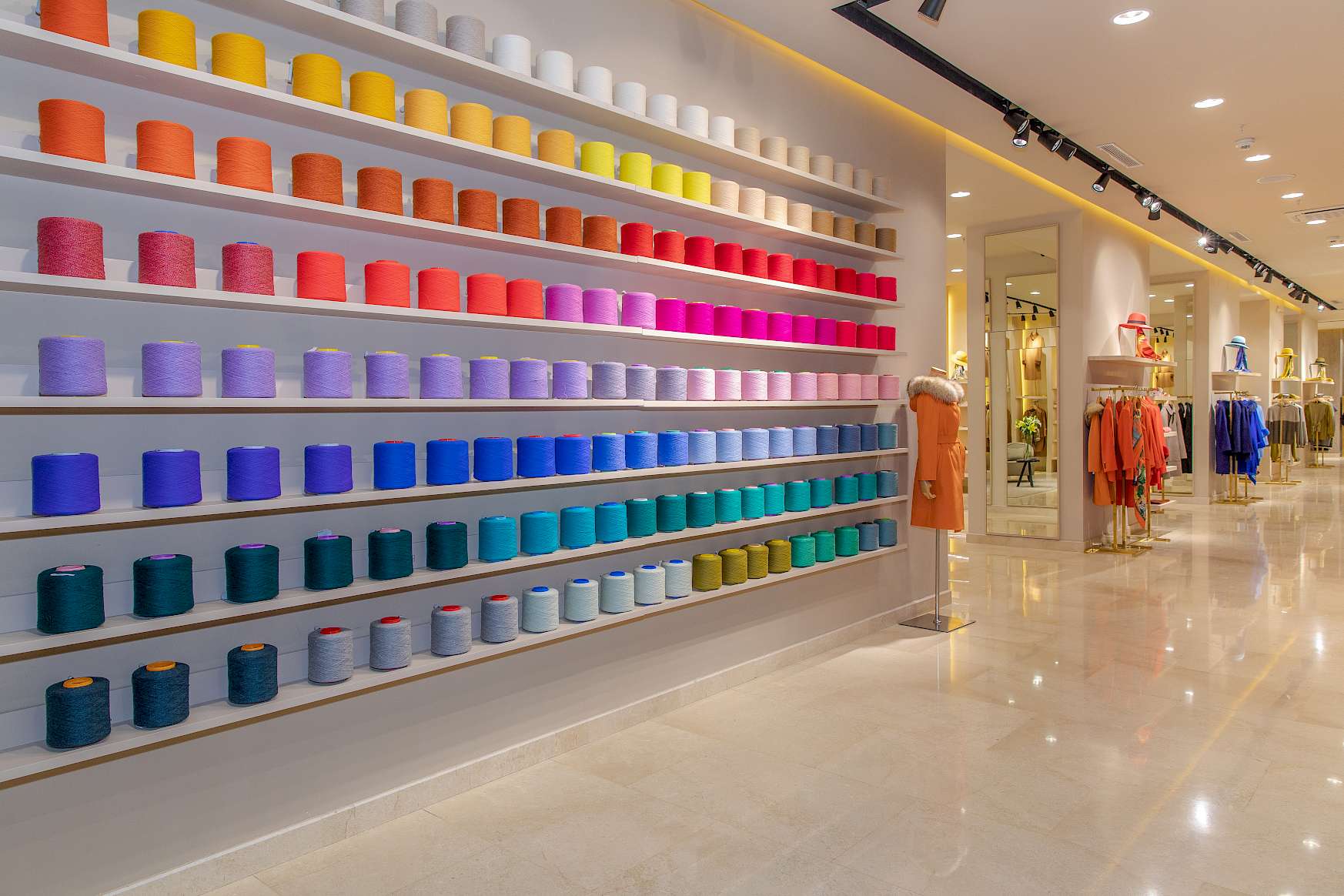
Mongolia, known worldwide for its finest cashmere and unique nomadic culture, has approved the National MNS 6926:2021 - Standard for Sustainable Textile Production, in line with key government policies, including the country’s long-term development policy Vision 2050 and the 2030 Global Agenda for Sustainable Development.
The National Standard was officially approved by the Textile Technical Committee of the Mongolian Agency for Standardization and Metrology, with the main objective to make the textile sector environmentally friendly, socially responsible and ethical. Small and medium-sized wool and cashmere producers who abide to this Standard will be actively contributing to greening the sector.
A wide range of issues are being covered by this National Standard including: the rational use of natural resources, energy consumption, the use of chemicals, industrial waste, social responsibility, labor protection, and animal rights.
The criteria and key outcomes of the Standard are based on the Voluntary Code of Practice for Sustainable Production (VCP), initiated and elaborated within the EU funded SWITCH-Asia Sustainable Textile Production and Eco Labeling (STeP EcoLab) project implemented by AVSF Mongolia and its partners. The Mongolian Wool and Cashmere Association and the German Center for Sustainable Consumption and Development, played a key role in formulating the sustainability criteria of the VCP to meet the requirements of international certification schemas.
Dr. U. Sarangoo, Manager of the STeP EcoLab project explained:
“It wasn’t an easy process. Initially, the concept of sustainability wasn’t clearly understood, especially among SMEs. Jointly with our partners, we had numerous meetings and consultations with key government institutions, as well as with processors. We explained the necessity for sustainable production and justified our interventions and had to be constant and systematic in our approach. Mongolia is a developing country and is very committed to promoting sustainable development in all sectors and boosting economic growth. Therefore, the approval of the National Standard in the wool and cashmere sector is imperative for the country’s development and its global recognition. But this is just an initial step, much more should be planned ahead.”
Guillaume Touati, AVSF Mongolia Country Representative also explained:
“AVSF Mongolia has been an active player in developing sustainable cashmere value chain in Mongolia by working with herder cooperatives to practice sustainable sourcing and, therefore, is happy to have this important outcome achieved at the processing level. This result will be absolutely imperative as it will contribute to developing a solid and trustable cashmere value chain and will definitely raise the country’s competitiveness on wool and cashmere markets worldwide. AVSF Mongolia would like to appreciate our partners for their continuous support and professionalism to assist the project team in the elaboration of the initial VCP document which actually is now evolved into a national MNS standard.”
To ensure the preparedness of the committed SMEs to “go sustainable”, STeP EcoLab jointly with the team of experts is currently in the process of providing practical advises on the basics of different sustainability criteria such as energy saving, water efficiency, waste management, chemicals use and social safeguarding.

Mongolian companies are already making progress. For instance, Gobi Company, one of the leading Mongolian cashmere manufactures, is implementing the 3R system and is working to upgrade solid waste management. Gobi Erdene LLC, a bright representative of the Mongolian wool and cashmere SMEs, has established a relationship with the herder communities registered in the national raw material traceability system to ensure the traceable sourcing of raw materials. Likewise, Nans Cashmere, is truly passionate about transforming the cashmere industry and is working to allocate a specially designed room for storing chemical products and documenting them.
The STeP EcoLab team is also supporting selected companies to prepare for the Premiere Vision 2022 Exhibition in Paris where Mongolian sustainable textile companies will demonstrate their ability to compete internationally with genuine, authentic, traceable Mongolian cashmere.

Furthermore, the National Standard indicators are in line with international standards, boosting the competitiveness of sustainably produced Mongolian genuine wool and cashmere products in foreign markets.
The STeP EcoLab project is contributing greatly to the introduction of sustainable practices down the whole value chain of cashmere and wool production and increase benefits of all involved stakeholders. I am delighted that the project has achieved this important milestone of approval of the National Sustainable Textile Production Standard. I hope this standard will help the industries to increase and boost their reputation not only nationally but also at international level, as the successful implementation of this standard is a good prerequisite for the companies to gain international recognition and obtain globally recognised certifications, said Pierre-Yves Lucas, European Delegation to Mongolia Cooperation Team Leader.
In light of the EU Strategy for Sustainable Textiles expected to be adopted by the end of 2021, the project’s support to the Mongolian textile companies to help them comply with international standard is very relevant. According to the European Environment Agency (EEA), most environmental pressures and impacts linked to the textile Industry in Europe occur in other regions of the world, as majority of production takes place outside the EU, particularly in Asia. The EU Textile Strategy 2021 will address this through measures that will improve the business and regulatory environment for sustainable and circular textiles in the EU. The approval of the Standard for Sustainable Textile Production is an important step towards compliance of international standards needed in promoting sustainable consumption and production (SCP) in the textile sector in Mongolia.
Related articles and stories:
Follow the project on social media:
Photo Credits:
© SWITCH-Asia Sustainable Textile Production and Eco Labeling (STeP EcoLab)


